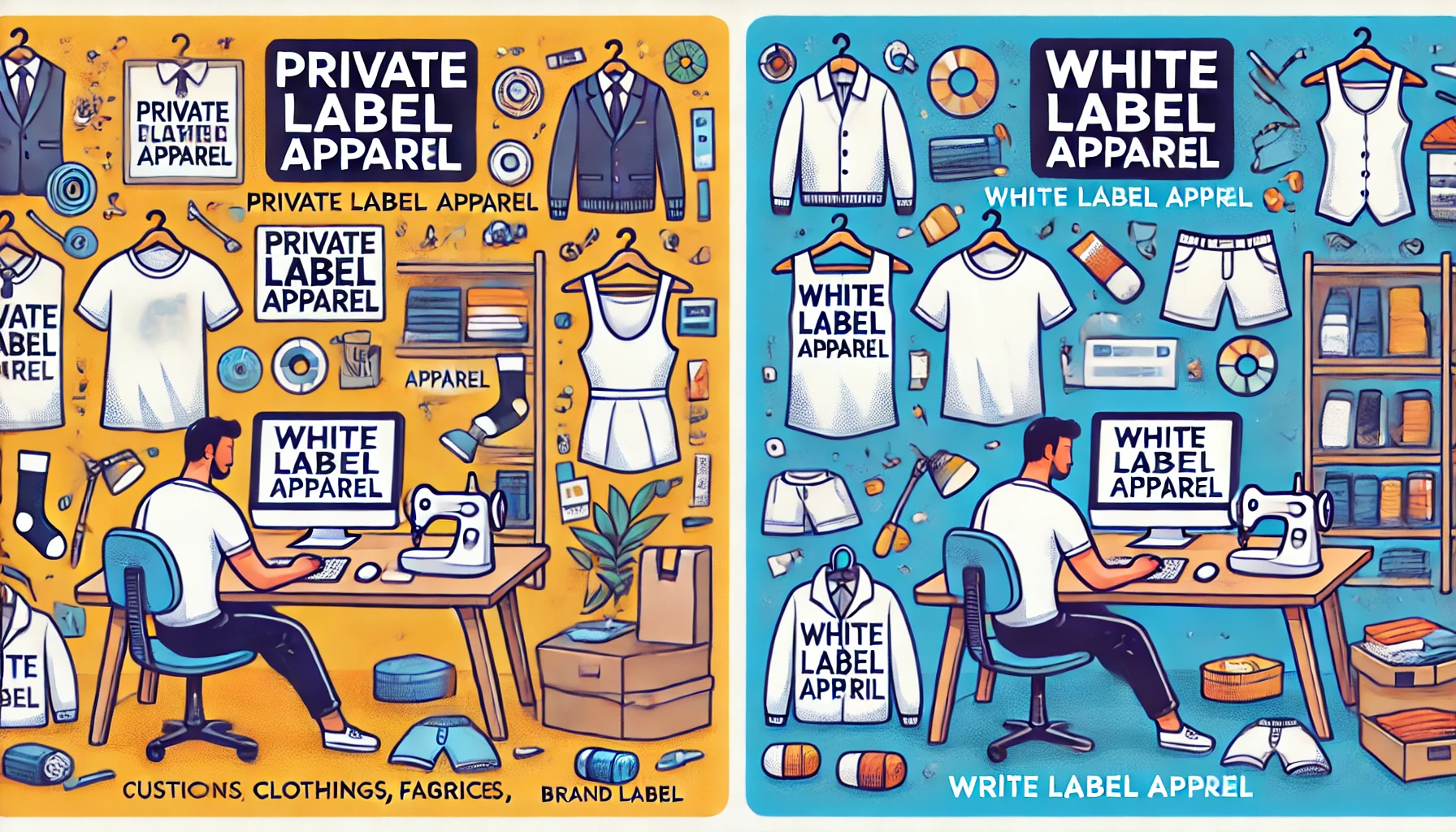Blog
-
Divest Impex
Private Label Apparel vs. White Label: What’s the Difference?

Mins To Read
Table of Contents
TogglePrivate Label Apparel vs. White Label: What’s the Difference?
When diving into the world of fashion branding, you might come across terms like “private label apparel” and “white label.” Understanding the differences between these two concepts is crucial for anyone looking to create their own clothing line. In this article, we’ll break down the distinctions, benefits, and considerations of private label apparel versus white label.
 What is Private Label Apparel?
What is Private Label Apparel?
Private label apparel refers to clothing products manufactured by one company but sold under another company’s brand. Essentially, you get to design and control every aspect of your clothing line, from fabrics and styles to branding and packaging. This level of control allows you to create a unique identity for your brand and differentiate yourself in the market.
What is White Label?
White label products, on the other hand, are pre-made products produced by one company and rebranded by another. With white label apparel, you select from a range of existing products, add your branding, and sell them as your own. This approach is typically faster and less costly than private label, as it eliminates the need for product development and extensive customization.
Key Differences Between Private Label and White Label
- Customization:
- Private Label: Offers extensive customization options. You can tailor every detail to fit your brand’s vision.
- White Label: Limited customization. You mainly change the branding elements, such as labels and packaging.
- Cost:
- Private Label: Generally requires a higher initial investment due to product development, design, and production costs.
- White Label: Lower initial costs since the products are already developed and ready for branding.
- Time to Market:
- Private Label: Takes longer to launch because of the time needed for designing and manufacturing.
- White Label: Faster to market since the products are pre-made.
- Brand Identity:
- Private Label: Helps in creating a strong, distinct brand identity as every product reflects your brand’s uniqueness.
- White Label: May not offer the same level of uniqueness, as similar products can be sold by other brands.
Benefits of Private Label Apparel
Choosing private label apparel allows businesses to create a unique brand experience. By customizing every aspect of the product, you ensure that your brand stands out. Moreover, private label clothing often appeals to consumers looking for unique, high-quality products.
Advantages of White Label Products
White label products are ideal for businesses looking to quickly enter the market. They offer a cost-effective solution with less risk, making them a popular choice for new brands or those testing new markets.
Making the Right Choice
Deciding between private label apparel and white label products depends on your business goals, budget, and timeline. If you have a clear vision and the resources to invest, private label might be the way to go. However, if you’re looking for a quick and cost-effective entry into the market, white label could be more suitable.
Conclusion
Both offers unique advantages and can help build a successful clothing brand. By understanding the differences and evaluating your business needs, you can make an informed decision that aligns with your goals.
Whether you choose private label apparel or white label, the key is to create a product that resonates with your target audience and helps your brand stand out in the competitive fashion industry.
Newsletter
Subscribe my newsletter to get the latest posts delivered right to your email.

